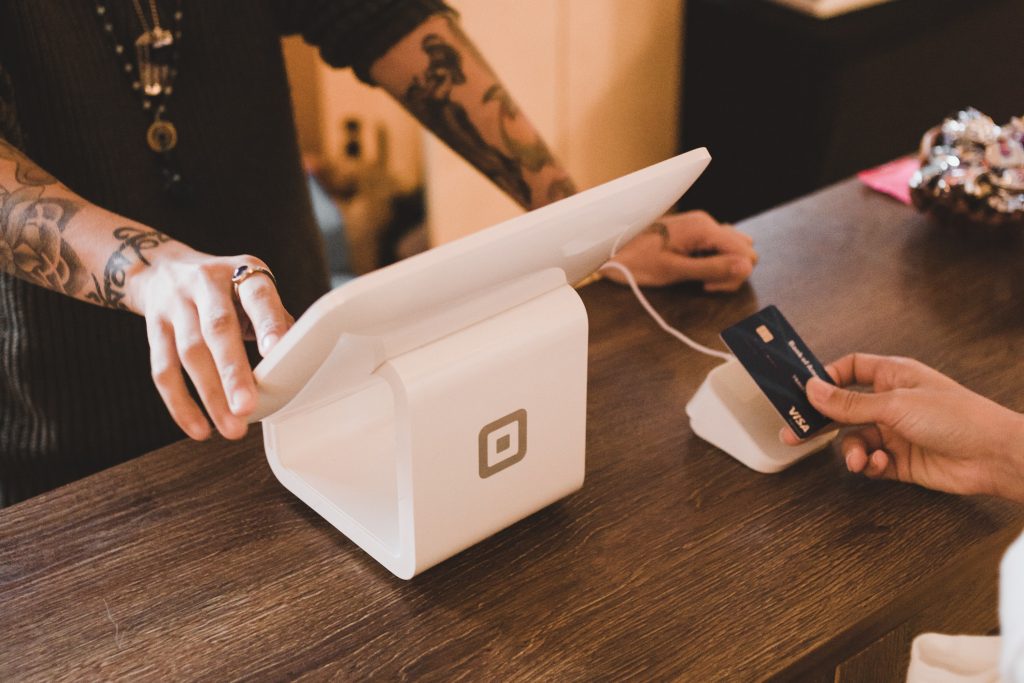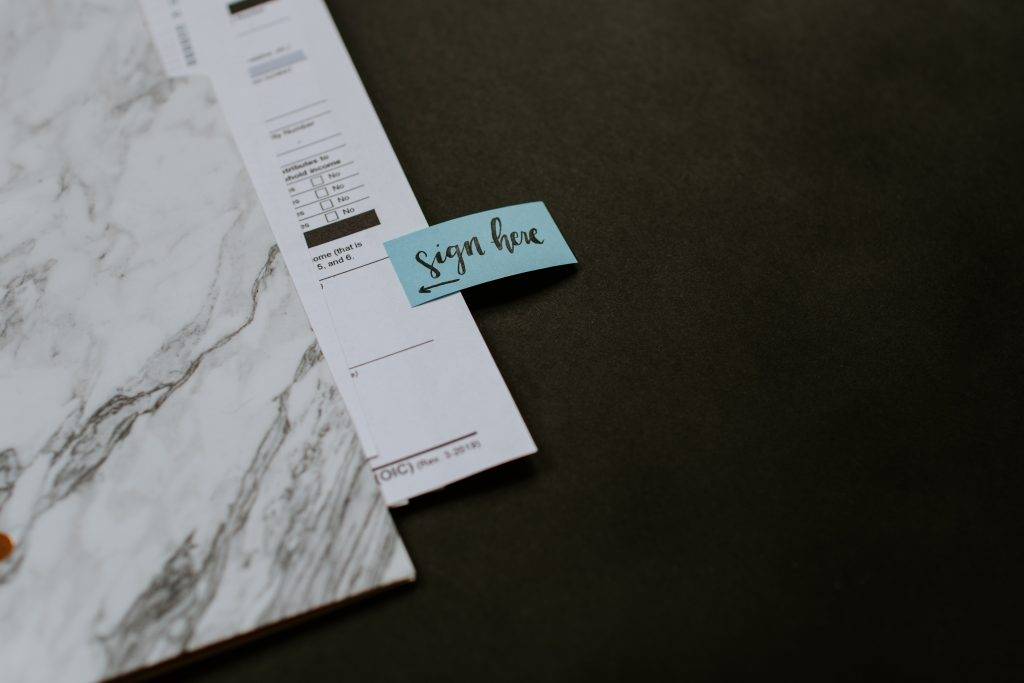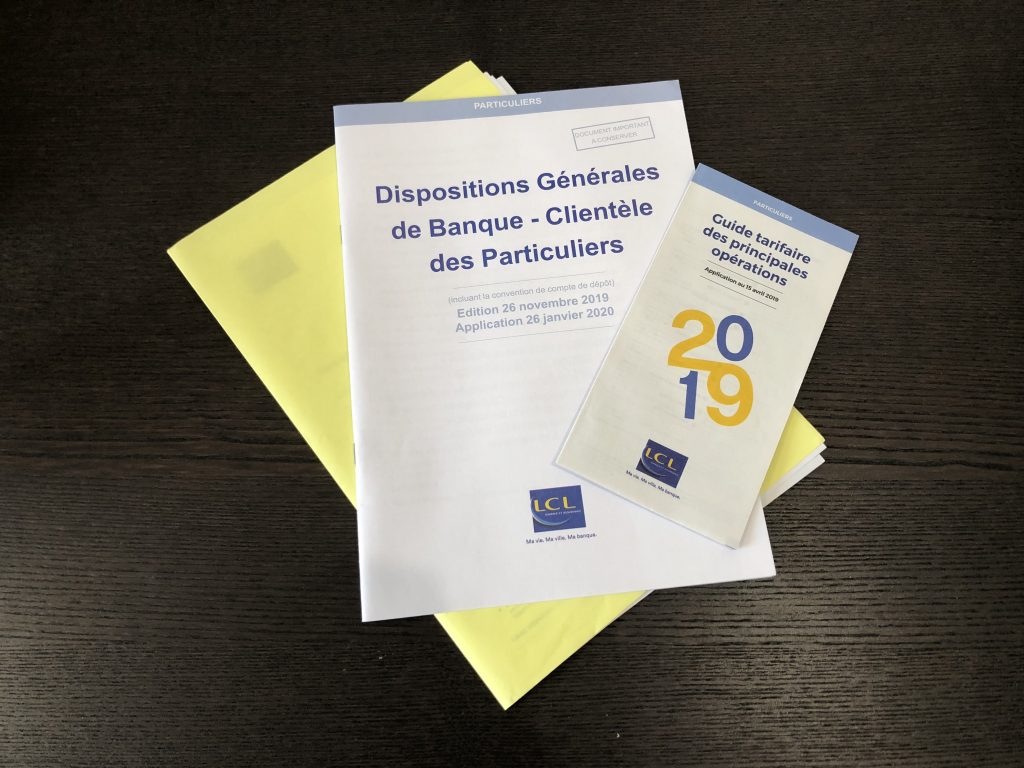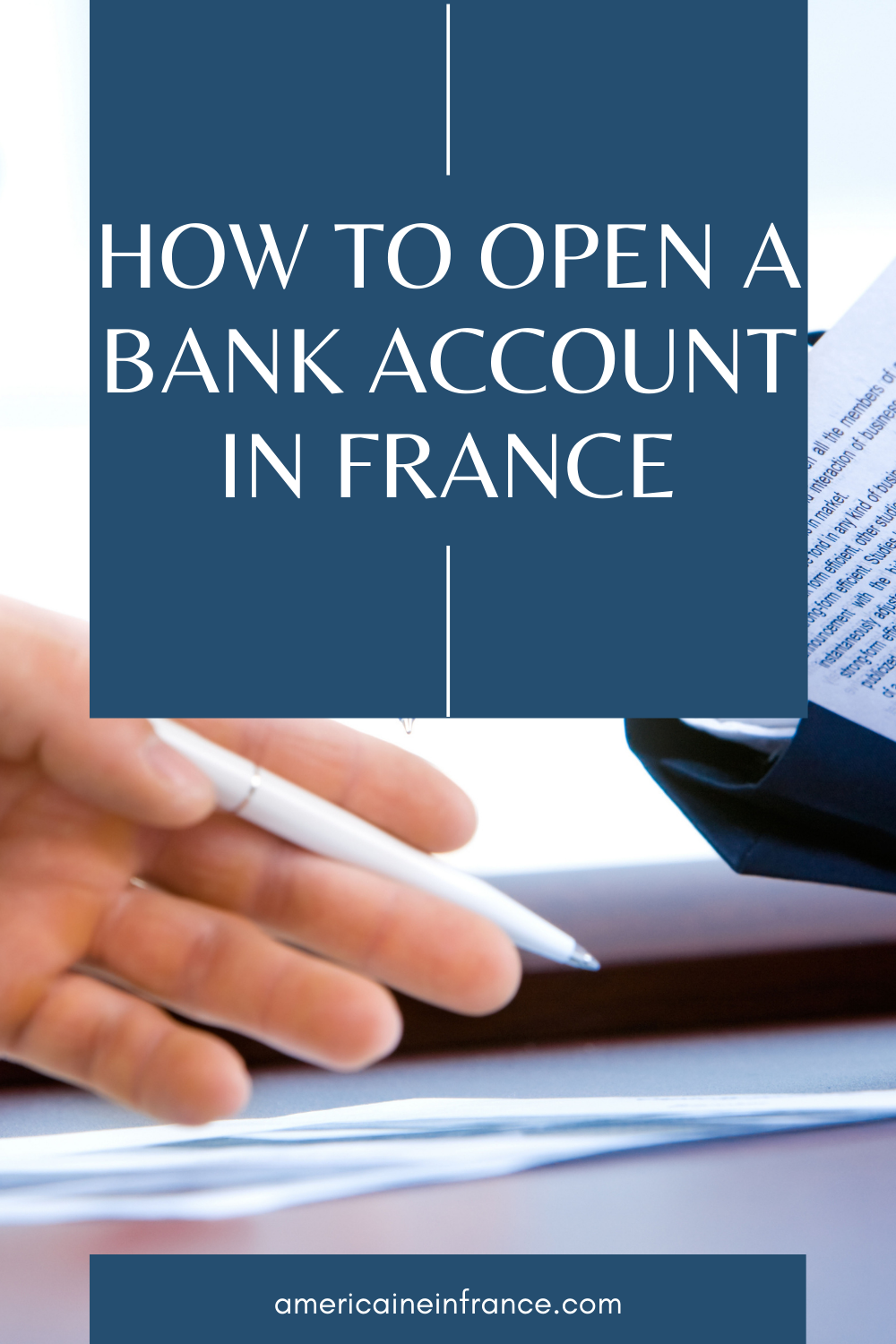This post may contain affiliate links, meaning that if you click and make a purchase, I may earn a commission at no additional cost to you. Read the full disclosure here.
Last updated: January 2021
In France, bank accounts are required for many essentials, including getting paid and paying taxes, paying rent and bills, participating in the national health care program, and signing up for a cell phone contract. You absolutely cannot live on a long-term basis in France without a French bank account.
As a foreigner, opening a French bank account is a hurdle you must overcome in order to prove yourself and your merit to the French people. Only then will they let you stay! My inability to acquire one within the first six months of living in France is, I believe, the main reason why my first request to change my visa status from “visitor” to “family” was refused. I’ll save that story for another post.
Opening a bank account is, like everything else in France, a process with an unnecessarily large pile of paperwork. If you are a foreigner, it’s a longer process. If you are an American, a bank might not even want to have you as a client. During my first attempt at opening a bank account, I learned that foreign financial institutions have reporting requirements under FATCA (Foreign Account Tax Compliant Act), a United States federal law. In a nutshell, banks are required to let the IRS know when an American opens a bank account and how much money is in that account. For the bank, this means more paperwork, more time, and ultimately more responsibility and risk. It’s not impossible for an American to open a bank account in France, but it can be frustrating.
Choosing Your Bank
Spoiler Alert: They’re All Bad
Brick and mortar banks in France do not have the best reputations. Actually, that can probably be said about most banks throughout the world. France is slightly worse, because they charge fees to hold onto your money, which is a ridiculous concept, if you ask me. You’re already giving them a sum of money, which they are investing. Shouldn’t they be paying me a part of that return? Or at the very least offering a free account?
If someone tells you how much they love their French bank, take this with a grain of salt! The reality is that they probably opened their bank account when they were twelve and haven’t changed it since, because the process would be so horrendously time-consuming. That being said, I think that there are some good branches that are managed well, and I think that there are some good advisors, but you aren’t really going to know until you go there.
The Best Bank Is the One That Lets You Open an Account
We initially picked Société Générale simply because Jonathan (my French husband) already had an account with them, and they were doing a special deal where if you brought someone new in to open an account, you each earned some money. This bank account never came to fruition (more on that below). It should be noted that one branch’s response is not indicative of the bank as a whole. I know a few Americans who swear that their account at Société Générale was easy to open.
Frustrated, I turned to expat blogs in search of a solution. LCL, HSBC, and BNP Paribas came up numerous times as banks that were receptive to American expats. (I’ve increasingly heard negative feedback about BNP in France regarding customer service, fees, and even instances of the bank unexpectedly closing accounts on American customers.) More recently, I’ve heard of Americans who have been successful with Crédit Agricole and La Banque Postale (operated through La Poste).
From this list, if you really want to know, I chose LCL because their logo is my favorite color—blue. It just felt right. Later, I was reassured to find out that one of my fellow American expat friends has an account with them. I used Google reviews to find a nearby branch with the best rating. The one I chose currently has a whopping 2.4/5—So good, right? I’m sure I don’t need to tell you that it’s mostly angry people who leave comments.
Complete Refusal to Open an Account
A bank can refuse to open an account for you. However, if you are a residing legally in France, you are entitled to a bank account. In this case, the bank is supposed to notify you and provide a refusal letter (une lettre de refus). They are not required to explain why they refused to provide you with banking services. Banks do not want to supply this letter and you may have to remind them that it’s the law. They’re banking on you, as a foreigner, to not know about it (haha, see what I did there?).
With this letter, you can launch a request with la Banque de France to have a bank account opened. There is a whole (lengthy) procedure for it. If approved, la Banque de France will designate a bank to open an account for you. I don’t know anyone who’s gone through this process. Honestly, I’d recommend just trying another bank…
Fees
Free checking is not a concept that exists in France. Online banking, a cheaper option, is only just starting in France, but for many things, you still need a physical bank. I think that this will change, eventually. For now, be prepared to pay for nearly everything. Just having an account costs money. There is a public website (in French) where you can compare bank fees. Considering that most major banks are fairly comparable, I don’t think that a bank fee comparison is the deciding factor when choosing which bank to go to.

I opened a basic checking account with an ATM/visa card with LCL. Here’s a breakdown of the fees that I feel are most pertinent to my situation:
- Account maintenance – 24 euros/year ($26)
- Debit/Visa card – 47 euros/year ($51)
- ATM Withdrawal – 3 free withdrawals from LCL ATMs per month; after the 3rd withdrawal, 1,37 euros ($1.50)
- Checkbook – Free
- Bill payment – Free
Making an Appointment
In order to open a bank account, you need to make an appointment, because you will be assigned an advisor who will take care of your initial paperwork and will also manage other transactions later on. The easiest way to make an appointment is by phone. Some branches don’t even allow people to walk in and make an appointment anymore. Depending on the bank and/or branch that you call, you may talk to someone at the branch or you may be directed to a customer call center. If you can’t reach the branch directly, I would consider this a bad sign and look for a different bank/branch.
Appointments are generally available about a week ahead of time. When you call to make your appointment, you should let them know that you are American. This will signal to them the extra work that will need to be done, and hopefully ensure that you are assigned an advisor who knows how to handle the extra paperwork.
Paperwork
When you make your appointment, you may be told a list of specific documents that you will need to bring. Or your advisor might call you a few days before your appointment. Or you may be left to your own devices to decide what you need. Good luck!
Side note for my French readers: In the United States, as an American, you can generally walk into a bank without an appointment and open a bank account on the spot, as long as you have a social security number and valid identification. You also need to have the minimum deposit amount, which can vary from one dollar to a few hundred dollars. Many banks waive monthly fees as long as you maintain a minimum balance and/or set up direct deposit with your job. You only need to sign one to two documents, as opposed to one hundred. (I’m only slightly exaggerating regarding this last point, and you know it!)

My Paperwork
In general, you need to prove a few things: your identity, your address, and how you will fund the account. The following list is what I brought to my appointment.
- Identification
- Passport with visa (or other titre de séjour)—I was on a long-stay visitor visa at the time.
- Proof of Address**
- Signed document from Jonathan saying he houses me
- Electricity bill (Jonathan’s proof of address)
- Renters’ insurance with both of our names
- My husband (Jonathan)—Yes, I brought my French husband to make me seem more legit and for these purposes consider him a document.
- Proof of Funds***
- Most people would bring their pay stubs or tax documents, but I have not worked since arriving in France.
- Proof of marriage (therefore my husband must support me!): livret de famille (family record book) and marriage certificate
- Jonathan’s most recent tax return (avis d’impôts) and bank statement (relevé de compte bancaire)
- My most recent American tax return and savings account statement
**There are two gold standards for proving your address in France: the French bank account and the electric bill. And this is actually funny, because in order to rent an apartment and pay for electricity, you need a French bank account, but in order to open a French bank account, you need to provide an electric bill. You follow me here? It is, however, very easy to be added to someone’s renters’ insurance, which is how I managed to escape this loop. There are other ways around this as well. You can often use the address of your AirBnb, place of employment, school, or even a friend or colleague, as long they provide a statement that that is your address and a copy of their identification.
***My advisor ended up not looking at either of our bank statements or taxes. He simply asked how we would be funding the account. We said we would make an initial deposit, and that was that. We also explained that I was seeking to change my visa status so that I could legally work and pay taxes in France and that I needed a bank account in order to do this. He essentially accepted the fact that I am currently not working, but would like to become a fiscal resident of France. At some point, you are going to find someone who helps you.
Additional Paperwork as an American
As an American, there are a couple of additional forms that need to be filled out during the appointment. The bank should provide you with these forms.
- W-9 form
- Validates your Social Security / Taxpayer Identification Number
- Tax Residency Self-Certification Form (each bank creates their own version)
- Declaration that you are an American citizen with tax filing obligations to the United States
The appointment lasts about an hour, so when they offer coffee at the start of the meeting, do accept it! You will lose track of the number of documents that you sign, but they will give you a copy of everything. Say a few prayers for the trees.
Did this guide help you? Say thanks with a cup of coffee!
After the Appointment
The most successful of appointments ends with you walking out of the bank with RIB in hand. The RIB is essentially your bank account number. Walking out with it means that there is a very good chance that your account will be open and ready for an initial deposit in the next few days. You should wait for confirmation before setting up the deposit. In my case, I received a phone call from the bank, letting me know everything was ready. You can call after a few days or email your advisor.

The bank will automatically mail out a code for access to the online banking portal upon approval of the account. Once the initial deposit has been received, the bank will let you know when the debit card is available. Usually, you pick this up at the bank, but due to COVID-19, the bank sent the card to me in the mail. The pin code is mailed separately.
PRO TIP: To activate your debit card you need to withdraw money from an ATM.
My First French Bank Account Was Never Opened
My first request to open a bank account was with Société Générale. Honestly, what happened with them started out as bad luck, but ultimately ended in poor business management. My first advisor went on leave starting a few days after filling out all the paperwork, so my file literally sat on her desk for a couple of months. It took four phone calls over the space of two months for the bank to let me know that I would need to come in and redo everything with a new advisor.
After submitting a new file with my new advisor, the indefinite Paris strike resulted in the branch shutting down for over a month. When everything reopened, my new advisor took a week or more to respond to emails, and my calls to the branch were always forwarded to an uninformed and unhelpful customer call center. I resorted to writing a Google review. Although the reply said that management would love to talk to me, I never actually heard from them. I even stopped by the bank to no avail. A straightforward refusal would have been preferable. In the end, they no longer replied to me at all. This all happened over the course of six months.
But, Why?
When you take into consideration that banking is a paid service and that the American government imposes requirements on international financial institutions who have American clients, you can understand why it might be difficult for a jobless American with a temporary visitor visa (oh hey—that’s me!) to open a bank account. This isn’t America where a bank would be happy to strap you with a high interest loan as long as you have a heartbeat.
The French have a different outlook on loans and debt, which is why, for example, credit cards are not at all common in France. French people usually pay with their debit card, meaning that they pay with their actual money instead of charging everything and paying it back at the end of the month, like we have the tendency to do. I suppose you could consider it responsible for a bank not to open an account for a jobless foreigner. As for why the bank stopped responding to me, I have no good answer for that.
Lessons Learned
I should have looked for a new bank sooner, but we had already invested a lot of time and energy into opening this account, and I was reluctant to have to start again. Furthermore, I wasn’t sure if I’d meet the same fate elsewhere. I don’t like pestering people. If someone tells me that a certain task will take one week, I’m more likely to wait two weeks before reaching out again. I guess I just like to give people the benefit of the doubt. Jonathan says I need to remember that it’s just business. In other words, I shouldn’t be so personally invested in what people will think of me if I call them every day asking why my account hasn’t been opened yet. I can’t help but feel rude and think that my persistence reflects poorly on me. It’s about finding a balance, I suppose.

Amusing to read–to experience, clearly not so much!
They are not making it easy for me, and each new administrative process feels like starting all over again. But I will succeed! Next up: health insurance!
Been trying everything to open an account here. My daughter (25 yo) is a European citizen and currently grad student. We own property in France, but no one (now with FACTA) will allow us to open an account whatsoever. Can anyone make a suggestion? we’ve tried Credit Agricole, La Poste, Orange, the online banks Boursarama, b4 bank. Ufff.
Hi there!
FATCA has been around since 2010, but you’re right, it has been getting increasingly difficult for Americans abroad to open bank accounts. It is not impossible however!
My first suggestion is to let you know that the refusal at one bank branch is not indicative of the bank as a whole. You might go to another branch of the same bank and be accepted. I mention an example of this in my blog post. Personally, I’d recommend LCL as that’s where I was able to open my account as an unemployed American on a long-stay visitor visa less than a year ago, but I have a few other suggestions up above as well.
As a last resort, you can also request that the bank provide you with a refusal letter. If you are legally residing in France, you are entitled to a bank account. If a bank refuses to open an account for a legal resident, they should provide this letter, although they won’t want to. You can then launch a request with la Banque de France, who will designate a bank and require them to open an account for you. It’s a whole procedure, but a possibility. I’ve updated my post and provided a link to the process under the heading “Complete Refusal to Open an Account.”
Good luck. I know how frustrating this is.
Ellen
Do you know how it works if you are a dual citizen of the USA and France? I am employed and pay taxes in the US, but I do have a French passeport and carte d’identité.
Hi Rebecca,
Are you asking in regards to the difficulties that Americans face opening bank accounts abroad? Unfortunately, if you have American nationality, you are subject to FATCA, regardless of whether you have another nationality as well. I hope that answers your question.
Best,
Ellen
I have been trying to open a basic business account (for an SCI) in France since LAST JUNE. The company is radioactive because 2 of my partners are American. At this point we may have to shut the business down. I’ve been turned down by four banks, all of which are ignoring my request for a letter de refus, so I can’t even go through what would surely be a byzantine process at Banque de France. So frustrating!!!!!!
In contrast, I have another SCI that is just me (French citizenship with a Certificate of Loss of American Nationality, and yes I relinquished because of the banking situation). I just opened a bank account for THAT company with an online bank in, no lie, thirty freaking minutes. (I asked about opening one for the first SCI and they told me to go pound sand. Oh well. No letter de refus either.)
Hello there!
I’m so sorry for the ordeal you’ve been going through in trying to open a French bank account. Incredibly frustrating!!
While difficult, I know Americans have been able to open bank accounts in France within the last year. That being said, I’m not familiar with SCIs and how that might affect an American’s ability to open a business account.
My best advice is to continue calling different banks/branches until you find someone that will open that account!
Best,
Ellen
Thank you! I can’t believe how difficult it is to shake a letter de refus out of these banks!
Can you not open an account with your local BNP Paribas branch here in the states and have the account transferred to France?
Great question, Hannah! If I had a BNP Paribas (Bank of the West) account open in the States (branches are not throughout the US), I would contact my local branch, ask if it’s possible, and specifically ask how they are going to assist me with this and if they have direct connections with specific branches in France.
I’ve heard conflicting reports of people being able to transfer their personal Bank of the West account overseas to France and others being refused the request. It seems it might come down to individual branches on both ends. My understanding is that Bank of the West is only an affiliate of BNP.
Would love to hear how this goes for you if you decide to pursue this option! Please report back if you think of it 🙂
Best,
Ellen
If a bank branch refuses to open an account, but sends you to another branch (mind you, many, many kilometers away), does this work as a loophole to not have to give you a “lettre de refus”? This is the problem we have run into with three different banks.
Hi Amy,
I’m sorry to hear that these banks have been giving you such a hard time. Your situation certainly doesn’t surprise me!
Some branches are more willing to accept Americans than others. If you haven’t already, perhaps try calling ahead of time to specifically ask. I know it would be ideal to have a bank close to home/work, but personally, I’d rather go with a bank that’s receptive to me as a client rather than one that was forced to open an account for me. If it’s possible for you, I’d recommend trying out a few more banks/branches before going through the Banque de France.
Best,
Ellen
P.S. Technically, you do not need the “lettre de refus” in order to launch the process with la Banque de France. If this is the route you’d like to take, there are more details about the process in the link I provided under the heading “Complete Refusal to Open an Account.”